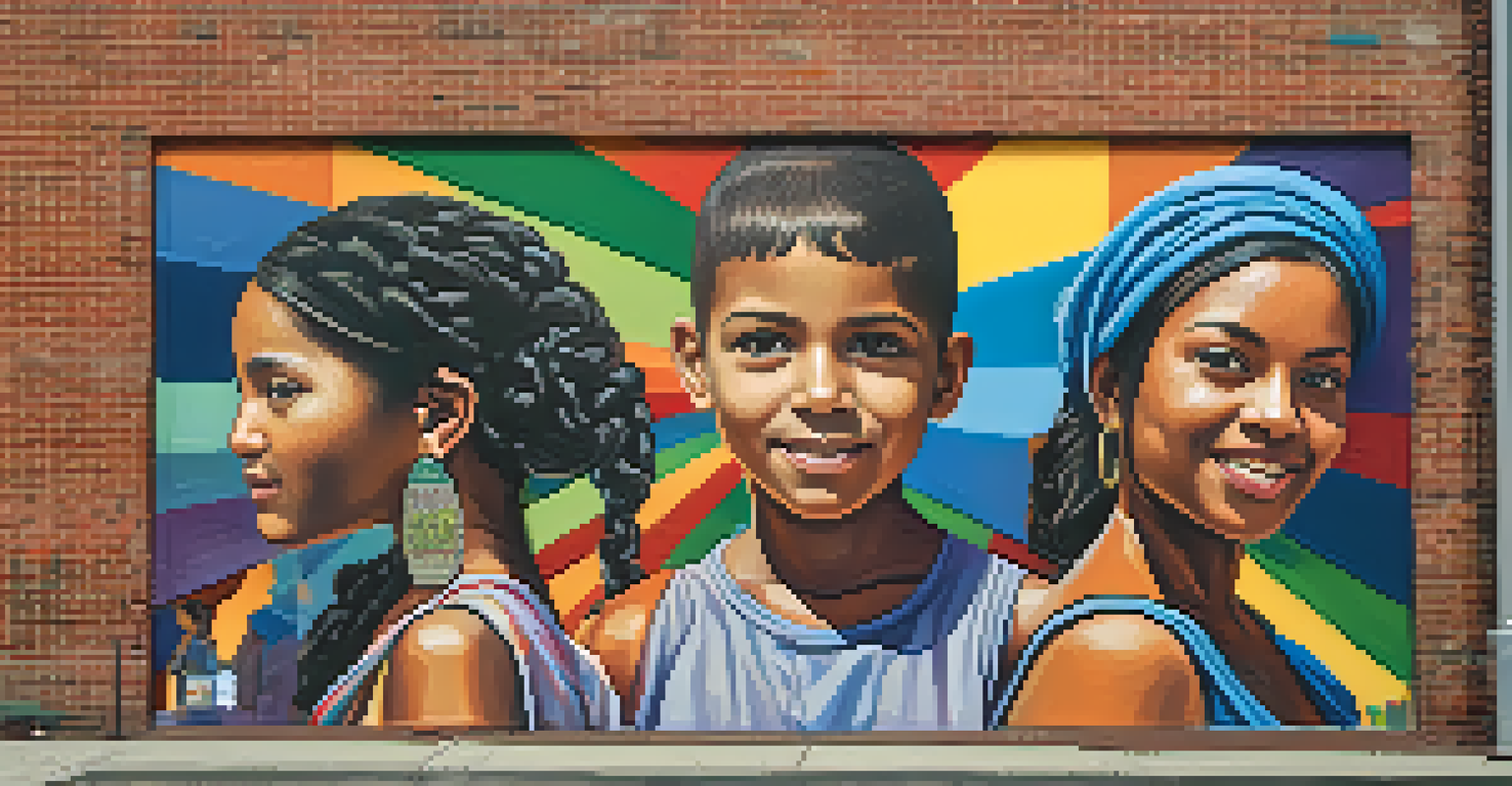Boston's Historical Roots in Modern Activism and Social Change

The Birthplace of American Revolution and Its Legacy
Boston's rich history as the cradle of the American Revolution sets the stage for its ongoing commitment to social change. Events like the Boston Tea Party and the Boston Massacre ignited a spirit of resistance and activism that resonates to this day. This revolutionary spirit has woven itself into the fabric of the city, inspiring generations to challenge the status quo.
The arc of the moral universe is long, but it bends toward justice.
As we look back, it's clear that the fight for independence was more than just a political movement; it laid the groundwork for various social causes, from civil rights to environmental justice. The same fervor that fueled early patriots now drives modern activists who see Boston not just as a historical site but as a launching pad for change. The echoes of past struggles remind us that activism is deeply rooted in Boston's identity.
Today, the city honors this legacy by fostering a culture where voices are heard, and movements gain momentum. From grassroots organizations to large-scale protests, the spirit of the revolution lives on, challenging Bostonians to engage with their community and advocate for those less fortunate.
Key Figures in Boston’s Activist History
Throughout its history, Boston has been home to many influential figures who have shaped social movements. From abolitionists like Frederick Douglass, who spoke passionately against slavery, to suffragists advocating for women's voting rights, these leaders have left an indelible mark on the city. Their legacies continue to inspire current activists to pursue justice and equality.

In more contemporary times, figures like Martin Luther King Jr. made significant contributions while in Boston, where he studied and preached. His advocacy for civil rights resonates with the current movements fighting for racial justice and equality. These connections highlight how history and modern activism are intricately linked, forming a continuum of struggle and progress.
Boston: Cradle of Activism
Boston's history of activism, rooted in the American Revolution, inspires modern movements advocating for social justice and equality.
It's essential to recognize that the impact of these individuals isn't confined to history books; their messages and actions continue to influence today's activists. By celebrating their contributions, Boston nurtures a sense of responsibility among its citizens to carry forward the torch of activism.
The Role of Educational Institutions in Activism
Boston's educational institutions, from Harvard to Boston University, have played pivotal roles in shaping activist thought and practice. These universities serve as incubators for ideas, fostering critical discussions around social issues and encouraging students to engage in activism. The vibrancy of campus life often translates into powerful movements that spill into the streets.
Injustice anywhere is a threat to justice everywhere.
Student-led initiatives have historically sparked significant change, whether championing civil rights in the 1960s or advocating for climate action today. The energy and passion of students create a dynamic intersection of education and activism, proving that learning extends beyond the classroom. This synergy cultivates a generation of leaders committed to social justice.
Moreover, the collaboration between academia and local communities amplifies the impact of activism in Boston. Research projects, community service, and partnerships with local organizations allow students to apply their knowledge in real-world contexts, bridging the gap between theory and practice.
Grassroots Movements: The Power of Community Action
Grassroots movements in Boston have demonstrated the power of community organizing to drive social change. These movements often arise from local issues, uniting residents who share a common goal. Whether it's fighting for affordable housing or advocating for immigrant rights, grassroots activism showcases the strength of collective action.
One notable example is the Boston Women’s March, which brought together thousands to stand against injustice and inequality. Such events not only raise awareness but also foster a sense of solidarity among diverse groups. They remind us that change often starts at the community level, where individuals come together to amplify their voices.
Education Fuels Activist Thought
Educational institutions in Boston play a crucial role in nurturing activist ideas, empowering students to engage in social change.
The success of these grassroots efforts highlights the importance of local engagement in the broader landscape of activism. By addressing issues that directly affect their neighborhoods, Boston's residents are not just participants; they are the driving force behind meaningful change.
Cultural Movements and Their Impact on Activism
Cultural movements have significantly influenced activism in Boston, shaping the narrative around social issues. Art, music, and literature serve as powerful vehicles for expression and resistance, bringing attention to causes often overlooked. From protest songs to street art, culture acts as a catalyst for change, inspiring action and solidarity.
One striking example is the role of the LGBTQ+ community in Boston, which has not only fought for rights but has also enriched the city's cultural landscape. Events like the Boston Pride Parade celebrate diversity while advocating for equality. This cultural visibility fosters a sense of belonging and encourages others to join the fight for justice.
As cultural movements evolve, they continue to intertwine with activism, creating a vibrant tapestry of expression and resistance. In Boston, the celebration of diverse voices strengthens the call for social change, reminding us that art and activism are often two sides of the same coin.
Modern Technology: A New Frontier for Activism
The rise of modern technology has transformed the landscape of activism in Boston and beyond. Social media platforms provide powerful tools for organizing, mobilizing, and amplifying voices that may otherwise go unheard. Activists can now reach a global audience in an instant, sharing their messages and garnering support for their causes.
For instance, the use of hashtags during protests helps to unite individuals around a specific issue, creating a digital community of advocates. This interconnectedness fosters a sense of urgency and solidarity, motivating people to take action both online and offline. The speed at which information spreads can rally support for a cause, even in the face of adversity.
Grassroots Movements Drive Change
Grassroots activism in Boston demonstrates the power of community organizing to address local issues and foster collective action.
However, with these advancements come challenges, as misinformation can also spread quickly. It's crucial for activists to navigate this digital landscape thoughtfully, ensuring their messages remain clear and impactful. By harnessing technology responsibly, Boston's activists can continue to inspire change in innovative ways.
Looking Ahead: Boston's Future in Activism
As Boston continues to evolve, its legacy of activism remains a driving force for social change. The city’s history serves as both inspiration and a reminder of the work that still lies ahead. With pressing issues like climate change, racial inequality, and affordable housing, the need for collective action has never been more urgent.
Engagement from diverse communities will be essential in shaping the future of activism in Boston. By encouraging participation from all walks of life, the city can cultivate a more inclusive movement that addresses the unique challenges faced by its residents. The blend of historical roots and modern activism can create a powerful narrative of progress.

Ultimately, Boston's future in activism depends on the commitment of its citizens to carry on the traditions of their predecessors. By standing together, learning from the past, and embracing new ideas, the city can continue to be a beacon of hope and change in a rapidly changing world.